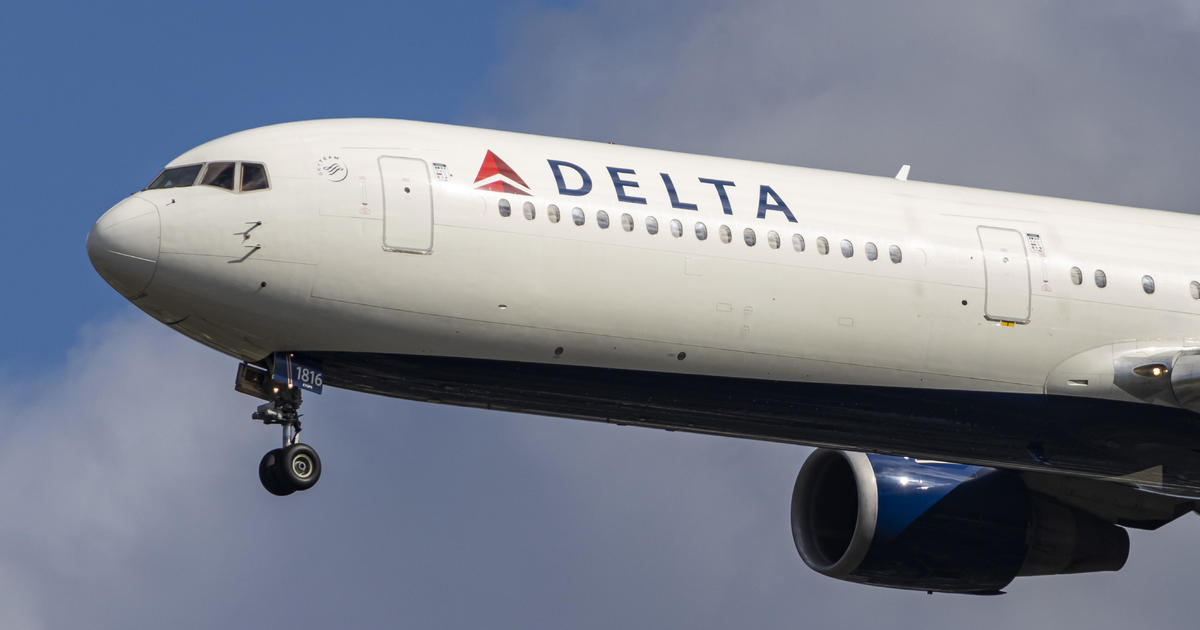In a dramatic turn of events, two Delta Airlines flight attendants were removed from a flight before its scheduled departure after failing a breathalyzer test. The incident, which occurred shortly before an international flight, has sparked concerns about airline safety protocols, employee conduct, and the broader implications for air travel standards. While the situation may appear isolated, it highlights ongoing questions about safety measures, accountability, and the responsibilities of airline staff to maintain a safe and professional environment for passengers.
The Incident: What Happened?
The unexpected delay occurred just before a Delta Airlines international flight was set to depart. According to sources, two flight attendants were subjected to a mandatory breathalyzer test, a common protocol used by many airlines to ensure that their staff is fit for duty. Unfortunately, both attendants failed the test, prompting the airline to take immediate action. Their failure to pass the breathalyzer test led to their removal from the flight, and the plane was subsequently delayed while replacements were arranged.
Immediate Response from Delta Airlines
In response to the incident, Delta Airlines released a brief statement confirming that two of its flight attendants had been taken off the flight due to a violation of company policy. The airline emphasized its commitment to safety and professionalism, stating that such protocols are in place to ensure passengers’ safety and to uphold the highest standards in aviation. While Delta did not provide specific details about the attendants’ blood alcohol content (BAC) or any potential disciplinary actions, it reiterated its commitment to maintaining a zero-tolerance policy toward intoxication among staff.
The Role of Safety Protocols in Aviation
Airline safety protocols are some of the most stringent in the world, and breathalyzer tests are a critical part of these measures. According to the Federal Aviation Administration (FAA), flight crew members are prohibited from operating an aircraft if their blood alcohol content is 0.04% or higher, half the legal limit for driving a car in the U.S. Airlines often implement additional internal policies to prevent intoxication among crew members, including random breathalyzer tests conducted before shifts or international flights.
Why Breathalyzer Testing is Standard Practice
Breathalyzer tests for airline staff are a safeguard designed to ensure the safety and wellbeing of passengers and crew. These tests are part of an industry-wide effort to prevent incidents caused by impaired judgment or performance. In addition to alcohol, other substances such as drugs or medications may impair a flight attendant’s ability to perform essential duties. Airline staff, especially flight attendants, are responsible for maintaining order, providing emergency assistance, and ensuring passengers’ safety in the event of an emergency. Any impairment could endanger the lives of those aboard the aircraft.
Analyzing the Broader Implications for Airline Safety
While the immediate cause of the flight delay was the breathalyzer failure, the incident raises broader questions about airline safety. This occurrence may lead to a reassessment of how airlines handle staff intoxication and how they ensure that their employees are fit for duty at all times.
The Impact on Passengers
For passengers, such delays can be a frustrating and unsettling experience, especially when they are due to reasons that are beyond their control. While delays due to safety violations may be inconvenient, it is important for travelers to understand that such measures are in place to protect them. Nonetheless, many passengers may wonder how often such incidents occur, how they are handled, and whether there are more efficient ways to prevent such disruptions in the future.
Challenges in Maintaining Accountability
Maintaining accountability among airline staff can be challenging. While airlines have strict protocols in place, it is also important to consider how to manage potential issues such as fatigue, stress, or personal problems that may affect an employee’s performance. Flight attendants often work long hours under significant pressure, and it’s possible that such stressors could contribute to poor decision-making or lapses in judgment.
Reactions from the Industry
The airline industry, in general, takes these issues very seriously. Following the Delta Airlines incident, there have been calls for even more rigorous screening processes for employees and for the establishment of clearer guidelines on how to handle situations where flight attendants or pilots fail breathalyzer tests. Industry experts suggest that while random alcohol testing is a critical safeguard, airlines may need to adopt a more holistic approach to employee wellness, which addresses factors beyond substance abuse, such as mental health and stress management.
Legal and Ethical Considerations
On a legal level, the consequences for flight attendants failing a breathalyzer test can be severe. Not only can they face immediate removal from their assigned flight and a suspension from duties, but they may also be subject to further investigation and legal action. Depending on the severity of the infraction, employees could face job termination or legal consequences, especially if their impairment is deemed to have jeopardized passenger safety.
Ethically, airlines are bound by a moral obligation to provide a safe and secure environment for all passengers. In this light, taking quick action against any violation of safety standards is seen as an essential aspect of upholding the integrity of the aviation industry. However, it is also essential that employees are treated fairly, and that the reasons for their failure to comply with safety standards are properly understood and addressed.
The Future of Safety and Employee Wellness in Aviation
As the aviation industry continues to evolve, it is likely that further scrutiny will be placed on safety protocols and employee wellness initiatives. Airlines are expected to adopt more advanced technologies and practices to monitor and maintain staff fitness for duty, as well as to provide better support for employee mental health. The challenge will be to strike a balance between rigorous safety measures and the wellbeing of airline staff, ensuring that crew members are not only physically capable but also mentally prepared to perform their duties under pressure.
Support Programs for Airline Employees
In the wake of this incident, experts suggest that airlines may need to invest more heavily in support programs for employees. Flight attendants face unique pressures, including irregular hours, jet lag, and the demands of managing large groups of passengers in confined spaces. Comprehensive wellness programs, including counseling, stress management workshops, and substance abuse prevention initiatives, could help prevent situations like this from occurring in the future. By focusing on the health and well-being of their employees, airlines can foster a more supportive and safe work environment, ultimately benefitting both staff and passengers alike.
Conclusion
The recent Delta Airlines incident serves as a reminder of the stringent safety measures that govern the aviation industry, particularly when it comes to ensuring that flight attendants and other staff members are fit for duty. While the failure of two flight attendants to pass a breathalyzer test led to a flight delay, it is crucial to remember that such measures are designed to protect passengers and maintain high standards of safety.
The broader implications of this incident are clear: airlines must continue to refine their safety protocols, ensure that their employees are supported in all aspects of their professional and personal lives, and invest in a culture of accountability. Only by doing so can the industry maintain the trust of passengers and ensure that air travel remains safe and reliable for all.
For more information on the latest safety standards in the aviation industry, visit FAA’s official website.
For ongoing updates about Delta Airlines policies, visit Delta Airlines’ official site.
See more Update My News



